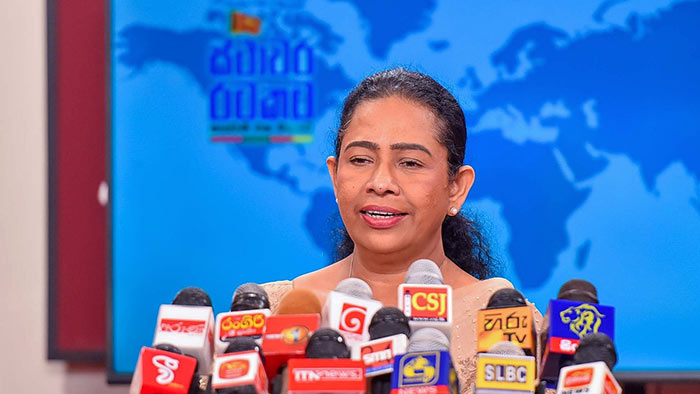Sri Lanka to use powerful sound waves and drones to mitigate human-elephant conflict

Sri Lanka to use high-intensity light currents, powerful sound waves and drones to mitigate the human-elephant conflict.
The Minister of Wildlife and Forest Resources Conservation and Irrigation, Pavithra Wanniarachchi said these pilot projects have been initiated in regions like Anuradhapura, Puttalam, Ampara, to mitigate the human-elephant conflicts.
The minister shared these insights during her participation in the news conference ‘Collective Path to a stable country’ at the Presidential Media Centre on Wednesday (December 20).
Addressing her views further the minister said:
“The Forest Conservation Department is dedicated to safeguarding the nation’s forests. Since assuming office as the minister, I’ve initiated a new program to enhance the department’s operations.
A key aspect of this initiative involves providing assistance to communities residing on the forest periphery to foster forest protection.
The idea is that if these communities can improve their livelihoods through the forest, they will naturally become advocates for its preservation.
There are valuable materials within the forest that can benefit those living on its fringes. Allowing them controlled access to these resources can contribute to forest conservation.
Notably, green tourism projects hold significant potential, presenting an opportunity to generate substantial revenue for the country through environmental preservation.
To shift our mind-set, we recognize that 29% of the country’s land area is forested. Efforts are underway to maximize the utilization of existing forests and to reforest areas that have been degraded.
The ministry is keen on supporting forest undergrowth and plans are in place to provide plants essential for enhancing the country’s existing forests.
Financial resources have been allocated for tree planting along roadsides and a government project providing saplings to boost people’s economies is already underway.
The ministry has experienced a remarkable 135% increase in income compared to the previous year, achieving impressive revenue of Rs.1670 million in 2022 and Rs. 4700 million so far this year.
The escalating human-elephant conflict is a significant concern. The population of both humans and elephants is rising and the cultivation activities of people are encroaching upon elephant habitats.
Plans for the construction of a thousand kilometres of new fences next year aim to prevent elephants from entering human-populated areas.
Additionally, 4000 workers from the Department of Multipurpose Development Task Force have been recruited as permanent employees to protect these areas, offering a potential solution to the conflict.
Various projects are being implemented to protect the living environment of elephants, including providing alternative lands through the elephant corridor.
Pilot projects involving high beam lights, high frequency sound waves and drones, with the support of the Navy and Air Force are underway to explore ways of deterring elephants from entering certain areas.
(President’s Media)
Latest Headlines in Sri Lanka
- Sri Lanka raises daily wage of plantation workers to Rs. 1,750 January 30, 2026
- Sri Lanka expands Internal Affairs Units to 250 more state institutions January 30, 2026
- Three arrested over Rs. 17 Million Lanka Sathosa garlic scam January 30, 2026
- Businessman arrested over Rs. 30 Million money laundering case linked to former minister January 30, 2026
- Six police officers arrested over alleged priest assault granted bail January 29, 2026


